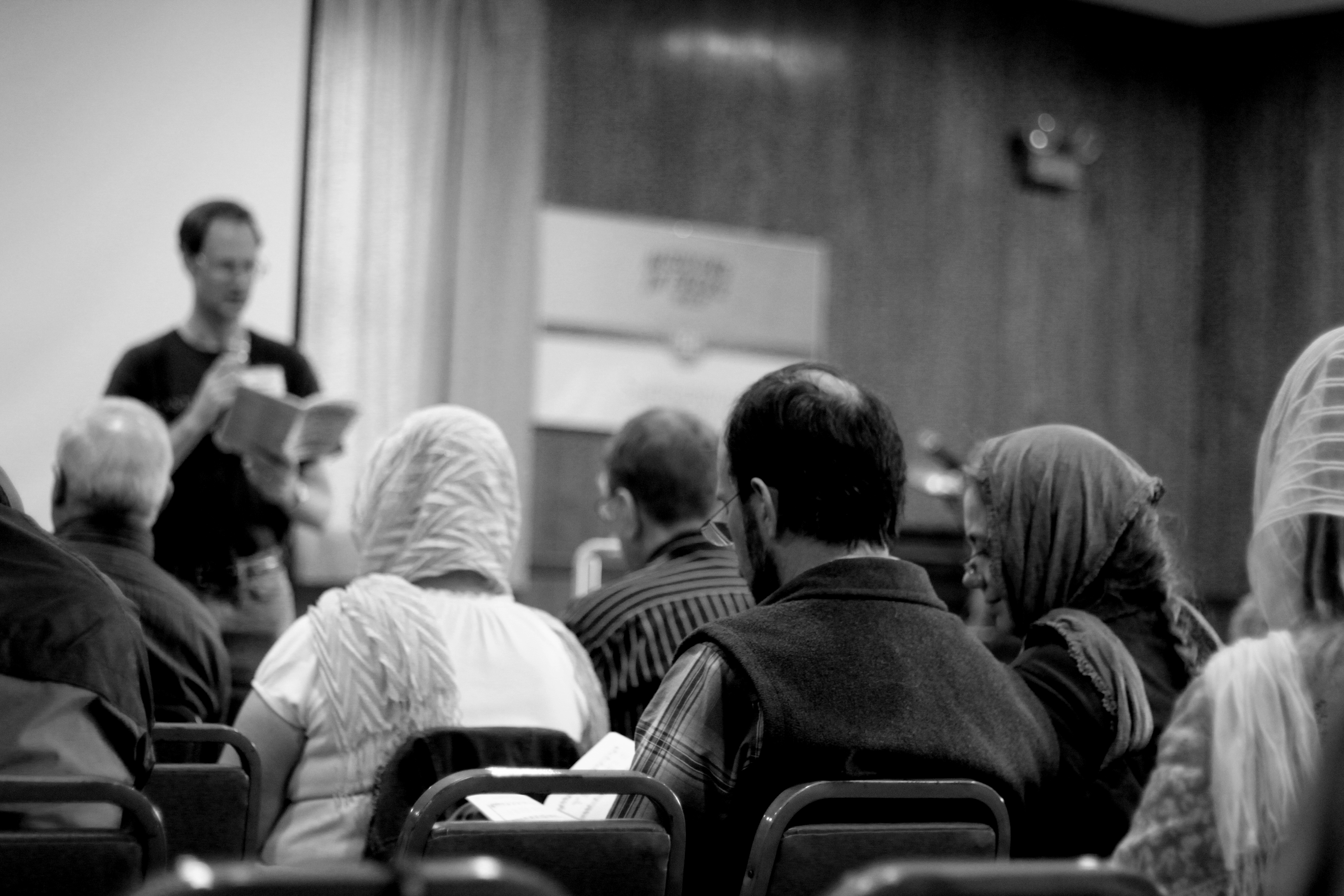The Church - Part 3

The church is definitely stated in the Scriptures to be the "body of Christ" (Ephesians 1:22-23; Colossians 1:18-24). The truth of this is also seen in other portions of the Word, as seen in 1 Corinthians 12 and Acts 9:4.
It is largely in Paul’s writings that this truth is taught, and the importance of it was conveyed to him in his first contact with the Lord Jesus on the way to Damascus. Perhaps it would not be too much to say that the interview he then had with Jesus as risen characterized the whole of his subsequent service to the saints. The knowledge that the persons on earth who he was persecuting were in fact the body of the living Head in heaven, revolutionized the whole outlook of Saul of Tarsus. He saw something which completely swept away from his thoughts the religious system in which he had lived and in which he had thought he was serving God. He learned that there was a living organism here on earth - the body of Christ. This living organism, which stands in sharp contrast to all organizations, religious or otherwise, was brought into being when the Holy Spirit of God came down on the assembled believers at Pentecost. The disciples had been "breathed on" by the Lord Jesus in the 20th chapter of John, and were thus to be characterized by the same living impulses and features which were seen in Christ Himself, but the body as such awaited the coming of the Holy Spirit for its formation.
As the formation of the body was the direct action of the Holy Sprit of God, so every member of that body from Pentecost to the present day has been the subject of the same Holy Spirit’s action. "For by one Spirit are we all baptized into one body." In that Scripture the apostle goes on to show how far beyond the principles of Judaism the truth of the body is. He adds, "whether we be Jews or Gentiles, whether we be bond or free." This is one of the grand facts of the mystery of which Paul speaks in Ephesians 3, where in verse 6 he says, "That the Gentiles should be fellow heirs, and of the same body." We thus see, on the one hand, that our position in the body, which is the church, is dependent entirely upon the work of God by His Spirit, and on the other hand we see that the truth of the body is related to the choicest eternal thoughts of God Himself.
Whilst dwelling upon the important place the work of the Holy Spirit has in connection with the formation of the body, we must also remember with adoring hearts that the work of the Lord Jesus on the cross enters into the matter. In Ephesians 2:16, we read, "And that He might reconcile both (Jews and Gentiles) unto God in one body by the cross."
The outward condition of the church gives us anything but a true picture of the body. God’s word is emphatic in saying, "there is one body," or it might read simply "one body" (Ephesians 4:4), as though God would impress upon our hearts the thought that is implicit in those two words. In that verse we again see the oneness of the body connected with the "one Spirit." As there is only one Holy Spirit, so as the result of His activities, there is only one body.
In Ephesians, chapter 1, something of the dignity of the body is brought before us. It is spoken of as "the fullness of Him that filleth all in all." The previous verses give us some indication of the glory of Christ in relation to the purpose of God. The glorious Person is "head over all things to the church which is His body." Now the church as the body is said to be the "fullness" of that glorious Man, that is to say she is capacitated to display the feelings, the mind, the affections, and the desires of her glorious Head. In Romans 13:10, love is said to be the "fullness of law"; that is the correct rendering of the word. It is in fact the same word as that used in the verse referred to in Ephesians chapter 1. Every thought of God in the law finds its expressions and filling out in love. By no other principle could God’s mind in the law be expressed. So the church as the body is unique in the fact that no other company is adequate to express that which is to found in her glorious Head. What a place of dignity grace has set us in, and with what delight the blessed Lord takes account of His church!
Do we not see from such Scriptures as Ephesians 3:6 and Acts 26:18 that these great and glorious thoughts of the saints were in the mind of God in sending forth the precious gospel?
The value of the church as the body of Christ is shown in the gifts He has given. According to Ephesians 4:12, these gifts (which we do not here enlarge upon) are, amongst other things, for the "edifying of the body of Christ." The "whole body" in "every part" (v. 16) is in mind; none are left out, the objective being the "increase of the body unto the edifying of itself in love." Thus the body is to be filled out by that which is the very nature of God Himself.
While appreciating and enjoying the place of dignity into which we are brought as forming part of the body of Christ, we must ever remember that in this sphere, as indeed in all others, Christ must have the pre-eminence" Not as in 3 John 9 where Diotrephes sought the place for himself, and would seek to cast his brethren "out of the church."
In Colossians 2:19, we see the necessity of holding fast the Head." The conduct and self-exaltation of those who do not do so is portrayed in the previous verse, but the result of "holding fast" is blessedly seen in the nourishment and unity which "increase with the increase of God."
Finally as seeking to fulfill the exhortation of Colossians, chapter 3, we can know and enjoy the peace of Christ presiding in our hearts, and move here as He did in a spirit of thankfulness to God. "And let the peace of Christ preside in your hearts, to which also ye have been called in one body, and be thankful. Let the word of the Christ dwell in you richly . . .singing with grace in your hearts to God" (vs. 15-16).




